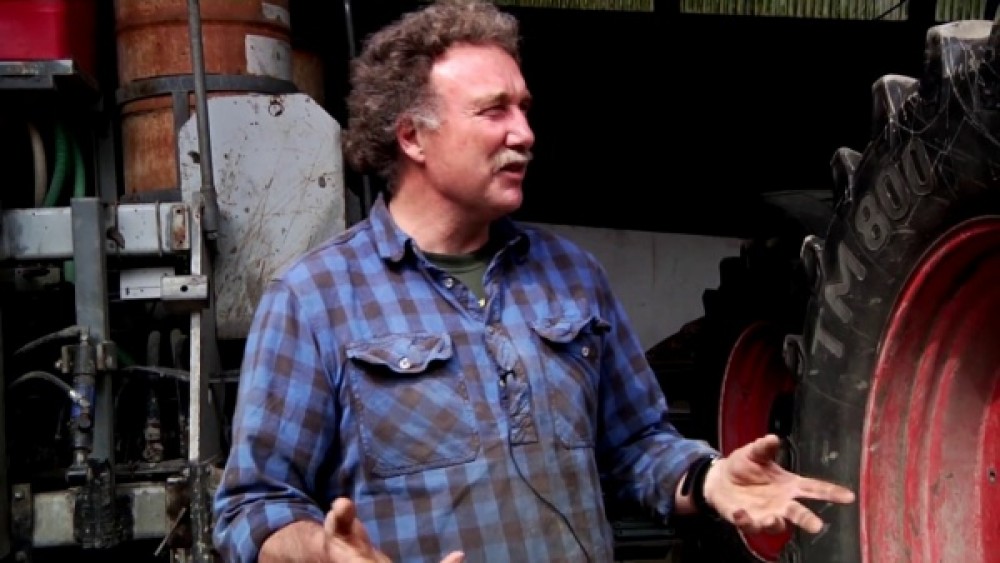Tony grew up on the Chatham Islands and, after spending time at boarding school on the mainland, returned home to work.
“Our family grow sheep and cattle on a 4,500-hectare station, which I’ve managed for the last 10 years,” Tony says.

“When I first returned, I worked as a fisherman and paua diver and witnessed my fair share of carnage, large and small catches, rough seas, people missing, boats upside down and washed up beaches.”
Like many other rural folk, Tony developed a fatalistic attitude towards life where some days finances were good, and on other days disaster struck and money became tight.
Like many other rural folk, Tony developed a fatalistic attitude towards life where some days finances were good, and on other days disaster struck and money became tight.
“Mental distress was a normal thing, but was never really recognised as that. Generally, you had a bit of strife, but if you were lucky you rescued your boat, fixed it up with a bit of a hand from everyone and got back into it.”
When Tony traded boats for stock bikes and started working back on the family farm, he noticed it takes a lot longer to put things right when you are working on the land.
The trick to reducing stress and distress when you are farming, Tony believes, is to keep things as simple as possible.
“Life on the Chathams seems very simple, yet, operating a business here is incredibly complex, because you are living so far away from the mainland. If something breaks down and you don’t have a spare, it can take a week to get replacement parts and they might not be the right pieces when they do arrive.
The trick to reducing stress and distress when you are farming, Tony believes, is to keep things as simple as possible.
“Life on the Chathams seems very simple, yet, operating a business here is incredibly complex, because you are living so far away from the mainland. If something breaks down and you don’t have a spare, it can take a week to get replacement parts and they might not be the right pieces when they do arrive.
“So, the simpler a system is, the easier it is to understand the issues when things do go wrong, and make the right decisions - which is good for your stress levels.”
He takes pleasure in making sure he’s not overwhelmed by the complexity of supporting his simple life, but is the first to admit that it’s normal for the wheels to fall off.
“In farming, and in life, sooner or later everybody is going to have problems. Things go well and then things don’t. You run out of cash. Things break, stock die, the dogs are useless, it’s wet, there’s smearing mud, no feed and it’s freezing cold…”
He takes pleasure in making sure he’s not overwhelmed by the complexity of supporting his simple life, but is the first to admit that it’s normal for the wheels to fall off.
“In farming, and in life, sooner or later everybody is going to have problems. Things go well and then things don’t. You run out of cash. Things break, stock die, the dogs are useless, it’s wet, there’s smearing mud, no feed and it’s freezing cold…”
Weathering the ups and downs
Tony reckons the remedy in those dark moments is to have a good laugh at yourself and recognise it is just part of life and that it’s your turn for the world to turn to custard.
“Custard being not just one disaster, but when a number of things keep piling up and the obstacles become insurmountable with seemingly no way out. At some stage in your journey through life, things are going to get that bad. Things happen that are out of our control and make us feel depressed. It happens to everyone.
Tony reckons the remedy in those dark moments is to have a good laugh at yourself and recognise it is just part of life and that it’s your turn for the world to turn to custard.
“Custard being not just one disaster, but when a number of things keep piling up and the obstacles become insurmountable with seemingly no way out. At some stage in your journey through life, things are going to get that bad. Things happen that are out of our control and make us feel depressed. It happens to everyone.
“I find acknowledging that those bad moments are normal and not unique to me frees my mind from dwelling on things and I can get on with fixing the situation. I know I’m not a failure just because things are failing.”
He is a firm advocate of supporting family, friends and neighbours through their experiences of mental distress. “If you’ve got to watch someone go through it, don’t give up on them. You’re not a good mate if you pull the pin.”
For Tony keeping things simple, finding humour in the dark moments, and being there for your mates makes weathering the ups and downs of rural life easier.
Tony talks to Farmstrong about the pros and cons of farming in the Chatham Islands.
He is a firm advocate of supporting family, friends and neighbours through their experiences of mental distress. “If you’ve got to watch someone go through it, don’t give up on them. You’re not a good mate if you pull the pin.”
For Tony keeping things simple, finding humour in the dark moments, and being there for your mates makes weathering the ups and downs of rural life easier.
Tony talks to Farmstrong about the pros and cons of farming in the Chatham Islands.
